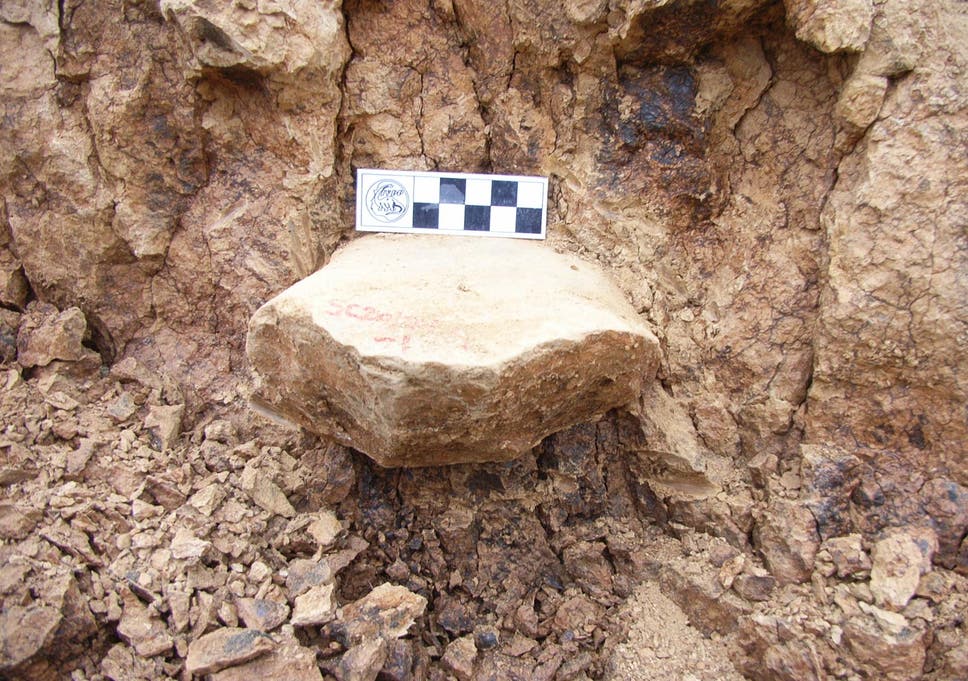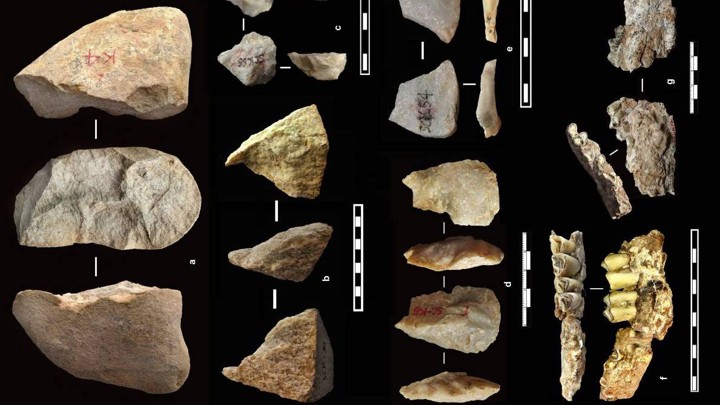Out Of Africa
"Suddenly you had a primate that could obtain meat from a carcass, and it opened up a new world for them."
"That simple technology was enough to get them out of Africa and right across Asia."
"Our discovery means it is necessary now to reconsider the timing of when early humans left Africa."
"Very importantly here, there are no geological processes that could have flaked these stones. The Loess Plateau is a stone free landscape—it is basically an enormous deposit of wind-blown dust, deposited year upon year by the winter monsoonal winds for the last 2.5 million years."
"Hominin remains are incredibly scarce. Their skeletons are very fragile, preservation is very rare, and they were not very common. In contrast, a single hominin can generate thousands of stone tools in a lifetime. Additionally, fossils will never indicate the first actual appearance of an animal—the first recorded appearance is always later than the first actual appearance, no matter whether it’s a hominin or a hippopotamus."
"As an archaeologist, I have always found it strange that some refuse to accept artifacts unless found with hominin remains when the antiquity of humankind was first established in the early 19th century from stone artifacts in France and Britain, and not from skeletal evidence."
Robin Dennell, paleoanthropologist, University of Exeter, Britain
 |
| One of the tools from the discovery site in Shangchen, China ( Zhaoyu Zhu ) |
"The roughly 14,000-kilometre trek from eastern Africa to eastern Asia represents a range expansion of dramatic proportions."Paleoanthropologists are discovering a long and unexpected fossil record of hominins in Africa, the oldest dating over six million years back in time. The earliest of these proto humans was bipedal, yet had chimpanzee-sized brains in a very short body. Homo erectus by 1.9 million years ago was in stride across East Africa leading many paleoanthropologists to make the assumption that Homo erectus represented the first of the migrants to leave Africa.
"The dispersal of hominins was probably facilitated by population increases as they moved into new territories."
"Yet even with a dispersal rate of only 5-15km per year, a value well inside the daily foraging range of modern hunter-gatherers, the distance between Africa and Asia could have been covered in just 1,000–3,000 years."
"What this paper suggests is: Boom! You get this dispersal, all the way across what was then the known Earth. The pieces were being filled in there very early on. It’s the kind of thing where, if we saw this for some other species, it would be remarkable."
"They [ancient horses] originated in North America, then migrated into the Old World about 11 million years ago. And then, boom, it’s like gangbusters. They’re everywhere."
Professor John Kappelman, anthropologist, University of Texas
In the 1990s older hominin bones were discovered in Asia, while in Georgia scientists came across ancient fossils as old as 1.75 million years; even older, at 1.82 million years of age were the stone tools found in Dmanisi, Georgia. A Homo erectus skull was unearthed for the first time in China, in 1964, named Lantian. It was thought to be 1.14 million years old, but in 2001 Zhaoyu Zhu, a Chinese Academy of Sciences geologist in Guangzhou and colleagues determined the skull to be 1.63 million years old.
Dr. Zhu and his colleagues found over a hundred ancient stone tools embedded 650 meters in depth in the side of a gully in the region around where the fossil was discovered. From that discovery came a new study published in the journal Nature, arguing that the stones whose indentations and scrapes they interpreted as tool-making efforts by primitive manlike creatures could not possibly have been so marked by natural means since the rock surrounding them had formed from what was originally grassland soil absent stones the size and shapes of the tools.
The assumption researchers reached was that the hominins at Lantian were spurred to make their way to mountain streams to enable them to select the stones to be made into tools, carrying the tools for use in food gathering, the sharp-edged portions used presumably to carve meat away from animal carcasses. Dating the discovered material in the layers of rock, the team estimated the tools to be 2.12 million years in age.
Scientists who publish studies leading to various conclusions will invariably find that not all their fellow scientists in related fields of study will agree with them, and John J. Shea, a Stony Brook University in New York anthropologist is one of these. He is suspicious of the reliance on tools alone to provide irrefutable evidence that hominins appeared over two million years ago in Asia: "Bottom line -- no hominin fossils, no hominins", he argues.
Homo erectus (the predecessor to Homo sapiens) was named by Paleoanthropologists as a species discovered to have travelled across Asia, some specimens found to be as old as 1.6 million years, roughly as tall as humans today, and with fairly large brains. Homo erectus's brain was about two-thirds as large as modern humans in contrast to chimpanzees with brains roughly one-third human size.
Dr. Zhu and his colleagues believe their discovery of those stone tools in China indicate they were made by ancient members of the human lineage. The expectation is that their find may represent a new addition to the advent of hominin evolution in that some species had travelled out of Africa at a much earlier date than was once believed; the hoiminin species small, bipedal apes with chimpanzee-size brains.
It was in Africa that human lineage arose and developed, where the primal ancestors of humanity diverged from those of chimpanzees seven million years ago.
 |
Labels: Bioscience, Paleoarcheology, Primitive Man, Tools

0 Comments:
Post a Comment
<< Home